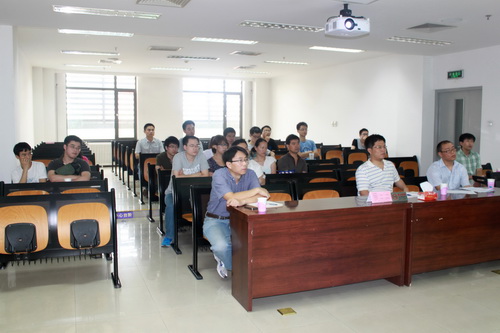Invited by National Engineering Research Center of Engineering Plastics, Dr. Ming XU from National Institute of Advanced Industrial Science and Technology,Japan ( AIST ) visited TIPC, CAS on June, 13 and gave an academic report entitled Carbon Nanotubes with Temperature Invariant Viscoelasticity from -196 °C to 1000 °C.
In the report, Dr. Ming XU introduced their research work on carbon nanotubes with temperature invariant viscoelasticity from -196 °C to 1000 °C, which were prepared by plasma technology.Viscoelasticity describes the ability of a material to possess both elasticity and viscosity. Viscoelastic materials, such as rubbers, possess a limited operational temperature range. (e.g., for silicone rubber: 55 to 300 °C) above which the material breaks down and below which the material undergoes a glass transition and hardens. They created a viscoelastic material composed from a random network of long interconnected carbon nanotubes that exhibited an operational temperature range from -196 °C to 1000 °C. The storage and loss moduli, frequency stability, reversible deformation level, and fatigue resistance were invariant from -140 to 600 °C. They interpret that the thermal stability stems from energy dissipation through the zipping and unzipping of carbon nanotubes at contacts.
After the report, the researchers and students took lively discussion with Dr. Ming XU on carbon nanotubes .



